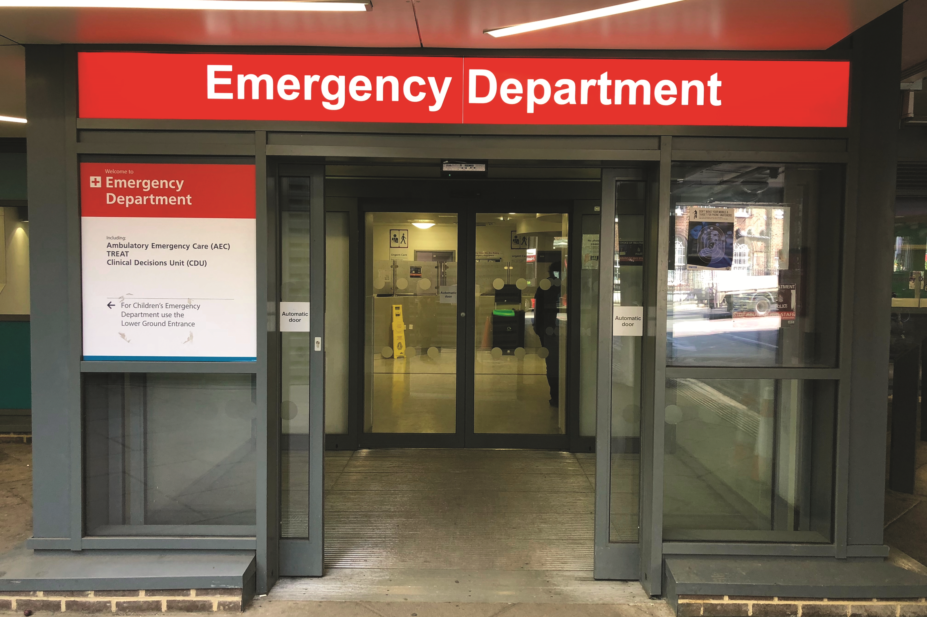
Shutterstock.com
All adults with primary adrenal insufficiency (AI) will be issued an NHS steroid emergency card to support early recognition and treatment of adrenal crisis, a National Patient Safety Alert has said.
The cards will be available to be issued by prescribers in secondary care from 18 August 2020, and by prescribers in primary care — including community pharmacists — from 1 September 2020.
AI is an endocrine disorder, such as Addison’s disease, which can lead to adrenal crisis and death if not identified and treated. Omission of steroids in patients with AI, particularly during physiological stress such as an additional illness or surgery, can also lead to an adrenal crisis.
On 13 August 2020, NHS England and NHS Improvement published a National Patient Safety Alert after a search of the National Reporting and Learning System identified four deaths, four patients admitted to critical care, and around 320 other incidents describing issues with steroid replacement therapy for patients with adrenal insufficiency or emergency treatment for adrenal crisis, occurring between 1 July 2018 and 28 July 2020.
As a result, the alert has requested that “all organisations that initiate steroid prescriptions should review their processes/policies and their digital systems/software and prompts to ensure that prescribers issue a steroid emergency card to all eligible patients” by 13 May 2021.
Prescribers conducting “standard/scheduled reviews (e.g. in clinics or when authorising repeat prescriptions)” should also review their processes and systems by this time to ensure all patients have been assessed and issued a card where needed, the alert said.
It added that community and hospital pharmacies will need to ensure that they can source and supply steroid emergency cards to replace those that might have been lost or damaged.
A statement published by Addison’s Disease Self-help Group in response to the alert has informed patients that “community pharmacy teams will initially be issuing most of these cards” as GP and hospital appointments are operating phone clinics “due to the current ways of working during COVID-19”.
Wing Tang, head of professional standards, at the Royal Pharmaceutical Society, said: “Pharmacy teams have a role to play together with the wider healthcare system and we’re working closely with Helen Simpson, RCP [Royal College of Physicians], RCGP [Royal College of General Practitioners] and others to develop guidance for patients and healthcare professionals which will help to implement the use of the new card.”
Helen Simpson, consultant endocrinologist at University College London Hospital, who led on the development of the card, said it was “designed to be something the patient can hold [as a hard copy] or upload to their phones”.
“It’s been in development for several years because patients with adrenal insufficiency have been coming to harm or even dying because steroids are being omitted during a crisis,” she explained, adding that the alert and card went hand-in-hand with national guidance published in July 2020 in the Clinical Medicine Journal
.
The guidance promoted a “new patient-held steroid emergency card” to be issued by prescribers and increase awareness of the need to start steroids promptly in patients at risk of an adrenal crisis, particularly those presenting in the emergency department or to acute medicine teams and those undergoing surgery or invasive procedures.
Ma’en Al-Mrayat, consultant endocrinologist at University Hospital Southampton, described the card as “an important tool” to “bolster, reinvigorate and formalise” the efforts undertaken by clinicians at local levels with support from learned endocrine societies and patient advocate charities.
“Sadly, such serious incidents demonstrate that what is considered to be basic and familiar to many healthcare professionals might not always translate into actions,” he said.
“This may be the result of knowledge gaps, lack of experience, distraction by solely focusing on primary presenting complaint, the patient being too unwell to give medical history, and in seldom cases due to indifference or even professional arrogance.”
Al-Mrayat said that the other actions stated by the alert, such as scheduled reviews, reissuing cards and review of admission procedures, would require “locally tailored solutions”.
“The value of sharing experience of good practices with other centres should accelerate the implementation phase.”
He added that the deadline of 13 May 2021, while potentially achievable in normal circumstance, could be hampered by the lack of disease-specific databases, staff efforts diverted to the NHS recovery phase, and the continued focus and resource redirection to the COVID-19 crisis.
- This article was updated on 19 August 2020 to highlight that the card will be available only in secondary care from 18 August 2020. In primary care the card will be available from 1 September 2020.
You may also be interested in

Tackling the NHS drug budget: why we set up a regional collaboration for medicines value

Lack of joined-up working between pharmacy and general practice is ‘nonsensical’, says former BMA chair
